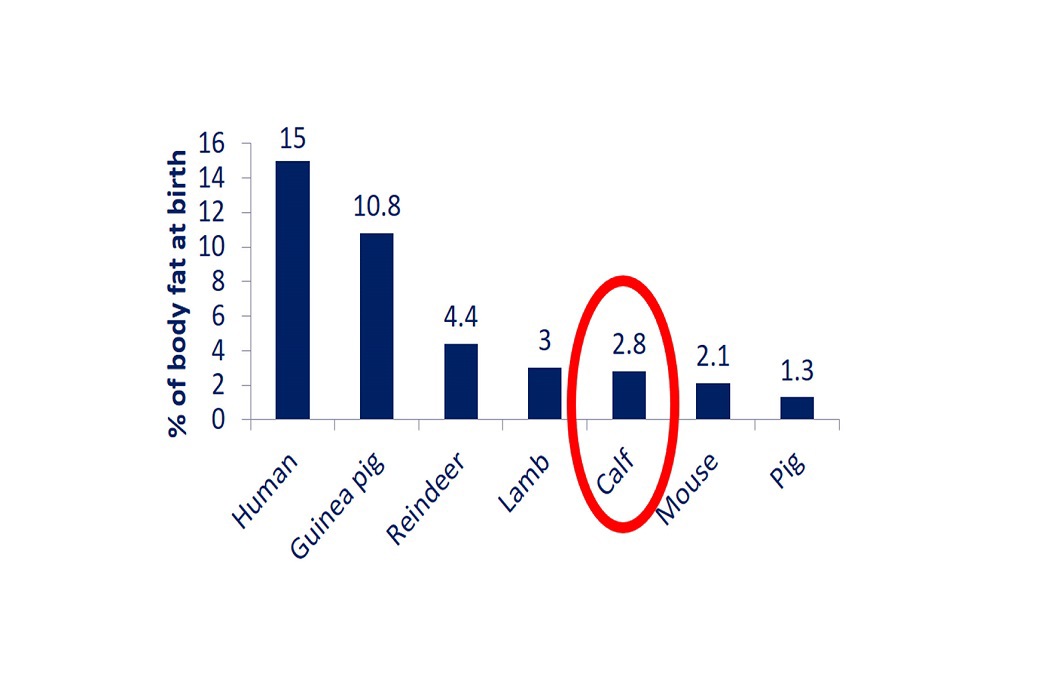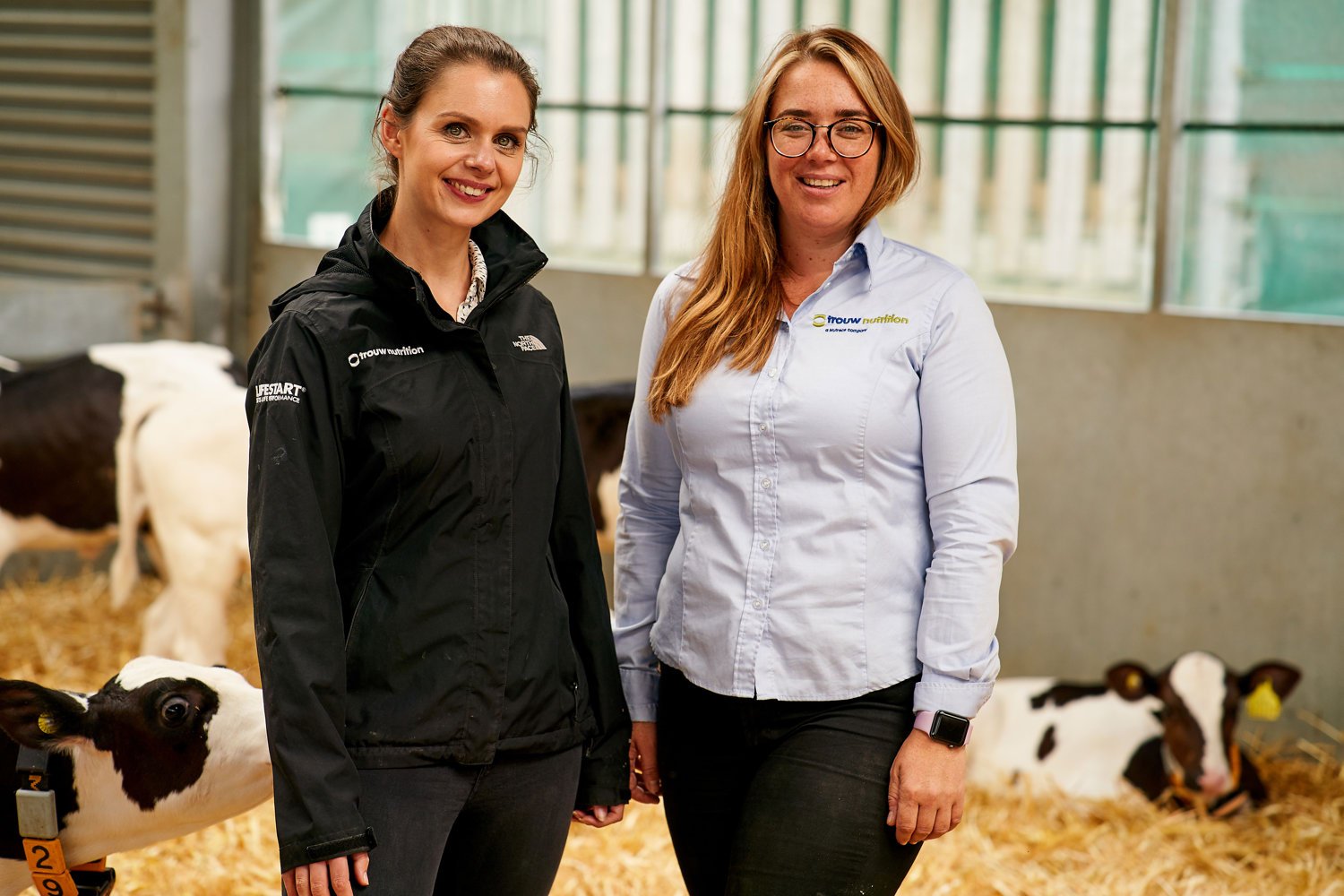
How colostrum benefits calves:
1) Calves are born without antibodies to pathogens, making them vulnerable to disease. Providing calves with sufficient amounts of good quality colostrum as soon as possible after birth is a highly effective way to ensure they receive the necessary antibodies.
2) Calves are born with a low energy reserve compared to other mammals (see graph) and benefit greatly from a high-protein super fuel like colostrum, provided promptly after birth.
3) Colostrum provides calves with vital ingredients such as hormones, intestinal growth factors and insulin to support digestion of milk solids in the early days of life and develop a healthy gut.



